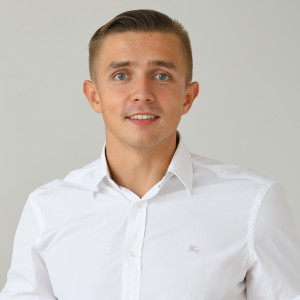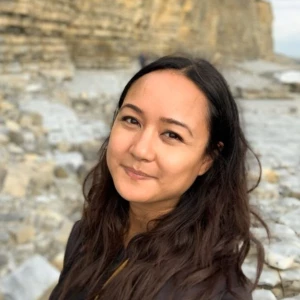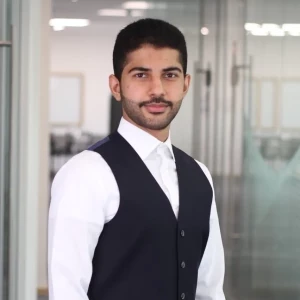Advice on fit questions and case interview at A.T. Kearney - Paris office for the Business Analyst position.
- Typical questions asked to inexperienced applicant
- Most common case interview
Thanks
Advice on fit questions and case interview at A.T. Kearney - Paris office for the Business Analyst position.
- Typical questions asked to inexperienced applicant
- Most common case interview
Thanks


Hi,
Below criteria selection for fit and case interviews and ATKearney's Paris office
1. Fit interview
2. Case interview
hope it helps. Don't hesitate to reach me directly I worked in Paris office.



Hi,
I recommend the following approach:
1) Start with "Case in point" book - you can download this book for free everywhere. It's not the best guide on how you should approach the cases, however, it will give you the basic understanding.
2) Start practicing cases with partners here or find them locally. !!! Find experienced partners or coaches who can provide a good feedback!!!
3) Purchase and read Viktor Cheng Book (Amazon Kindle store) and listen to LOMS (his website). I recommend to reread the book and listen to LOMS every 15 cases. Every time, having more experience, you’ll be finding something new.
4) Practice fast math
5) Below you can find a list of the most common case types and some high-level recommendations on structuring:
6) Also, I would try to focus on the most common industries in the following priority(sorted by probability of getting a case): 1-retail and CPG; 2-airlines; 3-Telecom; 4-banking; 5-natural resources; 6-tech
7) ! Important: don't forget about the FIT interview part. Crafting you stories and backups stories will require a couple of weeks!
PS
Here is a good list of articles regarding the different parts of the case:
1) Start with clarifying questions:
https://www.preplounge.com/en/consulting-forum/clarifying-questions-1786#a3956
2) Communicating while structuring. Here is a long post by me on how to communicate the structure during the case study:
https://www.preplounge.com/en/consulting-forum/how-to-communicate-its-structure-for-the-case-study-1313#a2806
3) Using hypothesis. I made a post about hypothesis here:
https://www.preplounge.com/en/consulting-forum/how-to-state-a-hypothesis-and-match-to-the-structure-1156#a2268
4) Communicating while making calculations:
5) Communicating during the analysis of graphs / tables
6) Communicating while having questions on creativity
7) Communicating your conclusion. You can find a good example I've posted here:
https://www.preplounge.com/en/consulting-forum/how-much-answer-first-should-the-conclusion-be-1231#a2493
8) Communicating your FIT stories
Use the top-down approach while communicating your stories. "The Pyramid Principle" is the must-read by ex McKinsey on this topic.
I recommend using the STAR framework:
Best!
I knew a bunch of folks that interviewed with ATK Germany. Here are my observations from memory:
- lots of logistics / supply chain case studies
- focus on automotive, semiconductors, and hi-tech sectors - they seem to come up more often
- be fluent solving in german (unless you aren't native, then english ok)
- lots of math/analysis focused Q&A

Hi,
I used the following case book for preparation:
https://www.slideshare.net/yongpau/interview-casebookfrom-at-kearney
But to be honest my interviews were pretty standard to consulting:
Best

Hi Henrique,
there is a lot of material out there, so it is definitely a good idea to structure an action plan to be as efficient as possible in your preparation. The following is the way I found better to prepare and that I would recommend. If you feel you don't have time to prepare/go though all the steps, it's definitely a good idea to ask to reschedule the interview.
Best,
Francesco

Hi Anonymous,
A good percentage of cases in consulting firms are related to revenues improvement or cost cutting. It is likely in your case you will get more the second type, together with operation frameworks. Examples would include:
Having said that, it is not unlikely to receive cases unrelated to the specific practice you are applying to; thus, it would make sense to cover also M&A, pricing, market entry and the other traditional type of cases as well.
Best,
Francesco

Dear A,
They will be asking the following:
Tell me about yourself (Walk me through your resume)
Why consulting?
Why McKinsey, BCG, BAIN etc?
The story about leadership (How you've taken an initiative and led the people
to achieve something)
The story about Personal Impact (How you persuaded people)
Entrepreneurial Drive (Innovative solutions that you are proud of most)
Your questions to the interviewer
And case for case interview will be proven you six big parts to being able to master the case: structuring, math, exhibit analysis, synthesis, communication and business sense. And my recommendation would be to focus on all of these things individually before trying to dive straight into solving complete cases.
Good luck!
Best,
André

Hi Henrique,
Congratulations on your first round. As you did calculations well, do not spend a lot of time with that for your preparation.
There are several things worth mentoning as well. Preparation to a case interview consists of 2 stages: theory and practice.
1st stage. Theory
Check out MECE principle, top-down, bottom-up à pyramid principle (book
Barbara’s Minto Pyramid)
Wharton casebook 2010- you can check how all industries work there (airlines,retail etc)
Case-in-point – you can check what frameworks exist, try to practice and learn them (product launch, M&A etc.)
Check how former business consultant approaches different cases with best interviewers – listen to at least 3 cases of Victor Cheng LOMS
2nd stage. Practice:
Solve at least 5-10 cases with experienced professional/student with good case experience (30-50 cases) to understand what factors influence the decision of the interviewer
Create your own case schedule (solve at least 1 case per day) with partners in local groups, universities/preplounge - depends on the interview date
Structure everything you do (how to go the shop, structure articles you read)
Solve at least 1 case per each case type you found in case in point
Learn how to analyze graphs (practice looking at graphs and asking "so whats" out of them)
Brainstorming is a must = generate at least 10 ideas on any topic in 30 seconds (how to increase revenue/how to market new airline)
Link to casebooks
https://www.dropbox.com/sh/sca51sb0um1e977/AAAYwPuNM27lQKhJK8Vg6mKaa?dl=0
Henrique, I wish you all the best with interview.

There are few set of questions, which you might be asked:
CV questions. Walk me through your resume OR tell me about yourself
Why did you choose your university?
Why did you choose your faculty?
How you showed your social activity and why this exactly?
Why do you have these hobby?
2. Motivational questions are designed to understand your internal drivers to be a consultant
Why consulting?
Why this region?
Why X firm?
3. Behavioral questions
In McKinsey interviews it's called PEI and structured into 3 parts. So being prepared for this kind of questions, you can crack similar questions in any other company:
The Entrepreneurial Drive / Drive and Achieving Question
The Personal Impact / Persuasion / Conflict Resolution Question
The Leadership / Teamwork Question
If you want to know, how to create your best stories on for that questions, I'm happy to help you.
GB













